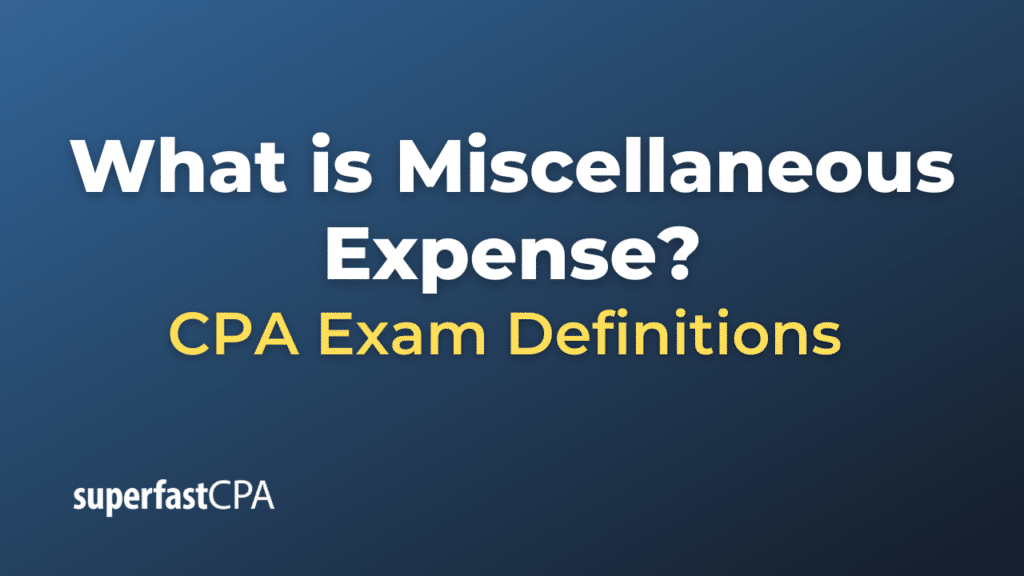Miscellaneous Expense
Miscellaneous expenses refer to costs incurred by a business or individual that do not fit neatly into other standard categories of expenses. These expenses are usually small, infrequent, or irregular, and may not be directly tied to a specific department or function within the organization.
For a business, miscellaneous expenses might include costs for office supplies, postage, small equipment, staff welfare activities, bank service charges, or any other minor expenses that don’t clearly fall under a specific category like “rent” or “salaries.”
For an individual, miscellaneous expenses could include small, unexpected or one-time costs, such as minor repairs, small donations, or postage costs.
It’s important to note that while these costs may seem small and insignificant on their own, they can add up over time and become a significant expense. Therefore, it’s essential for businesses and individuals to track these expenses carefully.
Finally, note that certain “miscellaneous expenses” that were previously deductible on individual U.S. tax returns have been suspended under the Tax Cuts and Jobs Act (TCJA) of 2017 for tax years 2018 through 2025. These expenses include unreimbursed employee expenses and other expenses that were formerly deductible subject to a 2% floor of adjusted gross income. As tax law can change frequently, it’s advisable to consult with a tax professional for the most current rules and regulations.
Example of Miscellaneous Expense
Let’s take an example for both a business and an individual.
Business Example:
Suppose you own a small retail business. You regularly incur expenses for utilities, salaries, rent, and inventory purchases – these all have their own designated categories in your accounting system.
One day, you decide to throw a small appreciation event for your employees to celebrate a successful quarter. The costs associated with this event, such as food, decorations, and small gifts, don’t fit neatly into any of your existing expense categories. These costs would typically be classified as miscellaneous expenses.
Individual Example:
Let’s say you’re creating a personal budget that includes categories like rent, groceries, utilities, transportation, and entertainment. One day, your watch breaks, and you decide to get it repaired. The cost for this repair doesn’t fit neatly into any of your existing categories, so you might classify this as a miscellaneous expense.
Remember, while each individual miscellaneous expense may seem small, they can add up over time. Therefore, it’s important to keep track of them so you can account for all your spending accurately.













